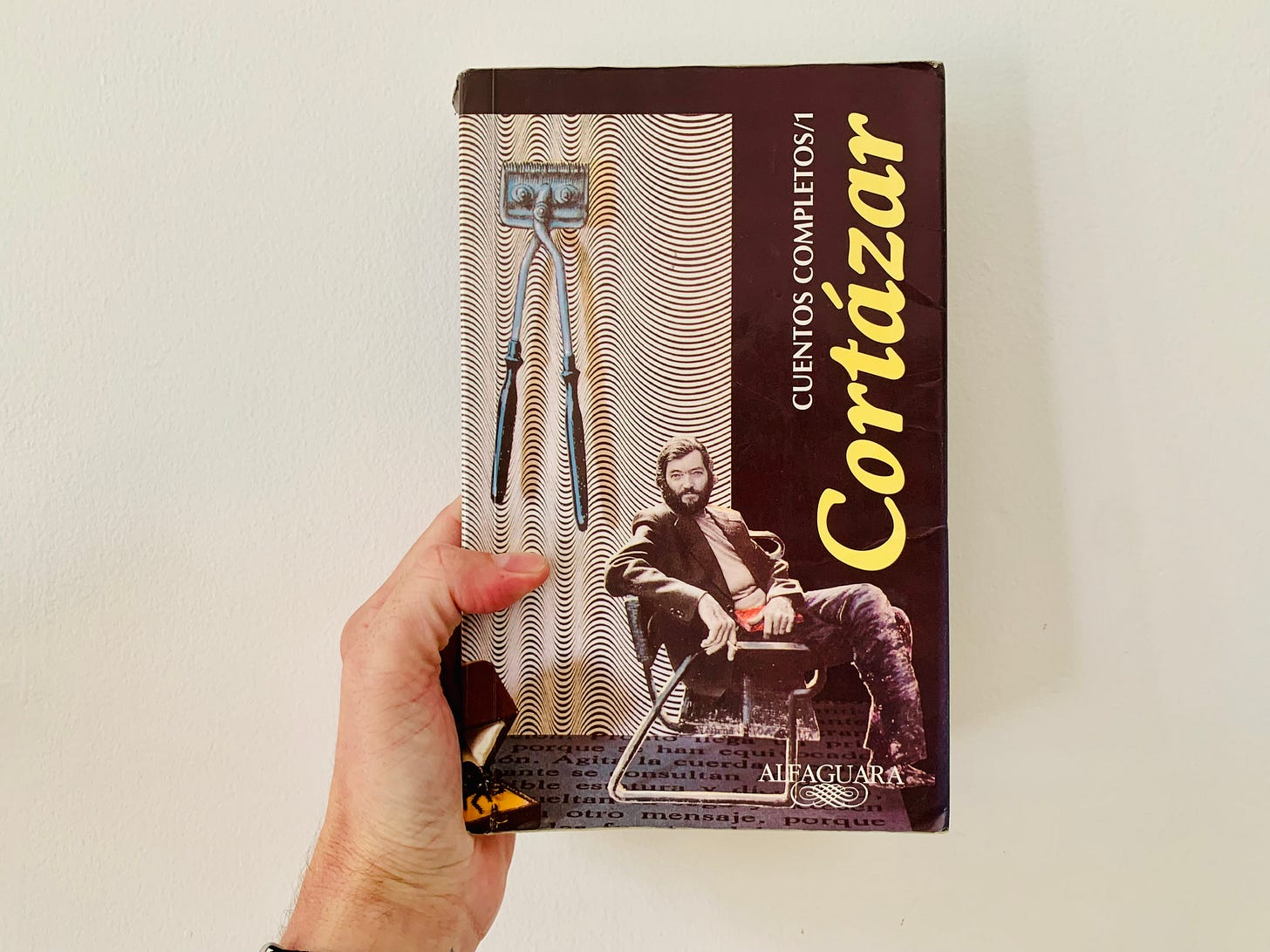Translation is always an approximation. A perfect translation is always impossible — there is always something that is lost, no matter how good the translator is. I think this as I re-read Julio Cortázar’s story “Usted se tendió a tu lado”. Even the title is impossible to translate. I could approximate it; and I can perhaps explain to you why this is untranslatable; but I would never be able to convey the whole effect in a practical manner. That’s because the whole premise of this story is based on the use of the personal pronoun “usted” as if it was a person. Let me explain.
Without launching into a Spanish lecture, “usted” is a second person formal pronoun — think of it like a “you sir / madam”. In Spanish, the informal second person would be “tú”; in Argentina — where Cortázar is from — “vos”1. But “usted” is formed using the conjugations of the third persons (“él” or “ella” — “he” or “she”, in English). This personal pronoun doesn’t exist in English but think about it like this: yo…
Keep reading with a 7-day free trial
Subscribe to ( ƒ ) to keep reading this post and get 7 days of free access to the full post archives.





